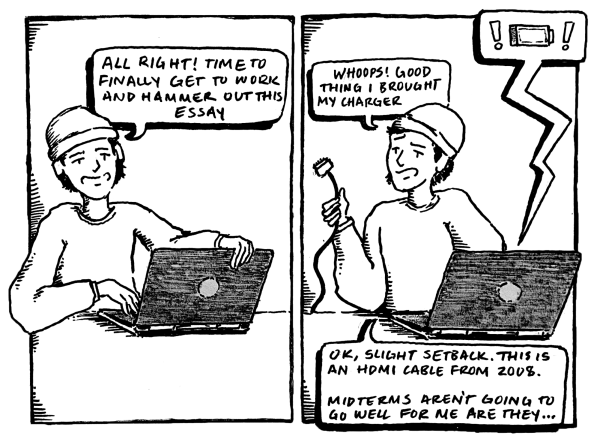Oberlin Administration Makes Empty Promises to Increase Faculty Compensation
In last week’s edition of the Review, Chair of the Board of Trustees T. Chris Canavan, OC ’84, is quoted as saying, “The board — and I know that [President Carmen Twillie Ambar] shares this view — believes that the most important reason that students come to Oberlin is because of the faculty. That’s why you go to college; to interact with this amazing group of scholars and teachers and thinkers and doers who deliver the core of the Oberlin educational experience.” In light of the board’s ongoing and deliberate disregard for faculty compensation at Oberlin, these words of praise ring hollow.
The facts are simple, and not in dispute. In 2013, following an extensive study by a shared governance group consisting of Trustees, administrators, and faculty, the Oberlin Board of Trustees passed a resolution to do two things: 1) embark on a plan to bring Oberlin faculty salaries to the median of our peer group at all ranks, and 2) make Oberlin faculty salaries in relation to our peer group a “strategic indicator” of our success. For three years, the board followed that plan, and we made progress; at one point faculty salaries were only 3.5 percent behind the median of our peer group. Then the board quietly abandoned its resolution, and in just a few short years Oberlin had fallen to 15 out of 17 in our peer group, 12.9 percent behind the average (Arts and Sciences salaries; we’re 10.1 percent behind if you add in the Conservatory). As measured by the strategic indicator approved by the board in 2013, Oberlin is failing. Badly.
For nearly every one of the last 10 years, many of our peer schools have averaged 4 percent raises. For Oberlin to keep pace, we need to match that, which would cost Oberlin about $800 thousand a year. To catch up, we’d have to do more. In three of the past four years, we’ve had no raise. In the fourth, a 2.3 percent raise was offset by a 16 percent cut to benefits. We are losing ground at an alarming rate. By 2024, at the current rate of change, our salaries will be 20 percent behind the average of our peer group.
All of these figures are pre-pandemic. None of them are the result of the current crisis.
Money is always tight, and the board has stated repeatedly that we must address a “structural deficit.” And yet, I cannot help noticing that money is not equally tight in all areas of the college. The board’s recent freeze on faculty salaries and cut to our benefits followed immediately on the heels of the most aggressive building program at Oberlin in half a century: new athletic facilities, a new jazz building, a new theater, the new hotel. We borrowed upwards of $50 million dollars to fund these projects, and their total cost has been considerably more than that. This year — a year with no raise — we have added at least three new administrative positions to the College, one at the Assistant Vice President level. And just the other day, the President announced that we are about to embark on a $140 million dollar upgrade of our woefully decrepit heating and energy facilities. I know that our heating system must be replaced. But if the College can announce a $140 million building project, it strains credulity when the board states that we cannot afford $800 thousand to give the faculty a competitive raise.
We recently learned that next year’s budget (which has not yet been approved, and may change) is projected to include $1.5 million for “strategic initiatives.” I don’t know what these are; I suspect I support some of them, but in any case, that’s nearly four times more than the $400 thousand set aside for a planned two percent faculty raise. And our endowment? We learned earlier this year that our endowment has recently crossed the $1 billion mark for the first time in Oberlin’s history.
How should a reasonable person interpret these facts? Budgets are a statement of priorities, and the board and administration have made their priorities clear. At Oberlin, buildings are more important than people; funding the administration’s initiatives is more important than supporting the faculty. Despite what the board and administration says in public, despite its repeated declarations of intent in our two most recent strategic plans — the “One Oberlin” plan, and the board’s formal resolution of 2013 — it has taken no significant action since 2017 toward paying us a competitive wage. Quite the opposite: the board is meeting its budget goals by systematically underpaying the Oberlin faculty and allowing our salaries to fall further and further behind our peer group each year.
There will be consequences. As our salaries become increasingly non-competitive, as our benefits continue to dive to the bottom of the pool, it will soon be impossible for Oberlin to hire or retain the kind of faculty that have made this institution great for the last 187 years. We are already losing, every year, some of our best early- and mid-career faculty. I believe that the damage will soon be irreparable.
To the Board of Trustees: I have a request. I would ask that you formally and publicly rescind your resolution from 2013. Eight years after the fact, our relative position is worse now than it was in 2013. If your intent is to underpay us, I respectfully request that you have the courage and decency to do so openly and honestly, rather than paying lip service to the hope of improving our salaries at some glorious, unspecified, distant, never to be realized future date.
To my fellow faculty: our board and administration do not recognize our worth, and will not ever pay us what we are worth. We must now come to grips with this fact, and act accordingly.


